Early life and family
He was born into an Anglo-Irish family in Limerick, Ireland, on 20 March 1833.
He married Christiana Emma Mudelle of Maidstone, Kent, England, in 1856, and they moved to South Africa, where they went on to have eight children, their eldest being Frederick Luke St Leger (1857 - 1938), another son Colonel Stratford Edward St Leger (1867-1935) was a member of the Royal Irish Regiment. His granddaughter was the artist and poet Joan St Leger Lindbergh.
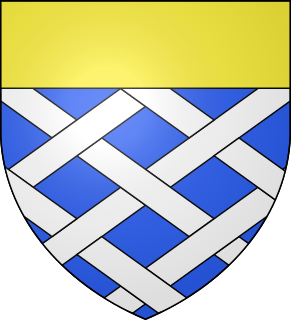
The St. Leger family is an old Anglo-Irish family with Norman roots, that in some cases transformed into Selinger or Sellinger. It is first recorded in England as lord of the manor of Ulcombe in Kent. John St. Leger of Ulcombe was Sheriff of Kent in 1430.

Makhanda, also known as Grahamstown, is a city of about 140,000 people in the Eastern Cape province of South Africa. It is situated about 110 kilometres (70 mi) northeast of Port Elizabeth and 130 kilometres (80 mi) southwest of East London. Makhanda is the largest town in the Makana Local Municipality, and the seat of the municipal council. It also hosts Rhodes University, the Eastern Cape Division of the High Court, the South African Library for the Blind (SALB), a diocese of the Anglican Church of Southern Africa, and 6 South African Infantry Battalion. Furthermore, located approximately 3 km south-east of the town lies the world renowned Waterloo Farm, the only estuarine fossil site in the world from 360 million years ago with exceptional soft-tissue preservation.

St. Andrew's College is an Anglican high school for boys located in Makhanda (Grahamstown), Eastern Cape province of South Africa. It was founded in 1855 by the Right Reverend John Armstrong, the first Bishop of Grahamstown. It is a semi boarding school, with a number of day boys. St. Andrew's College caters to 480 pupils from around the globe. The school is also a member of the G30 Schools group and closely associated with its brother school, St. Andrew's Preparatory School, and its sister school the Diocesan School for Girls.

The Cape Times is an English-language morning newspaper owned by Independent News & Media SA and published in Cape Town, South Africa.
Henry Melville Taberer was a South African cricketer who played in one Test in 1902. He was the son of the Revd C. Taberer and was born at a mission station in Keiskammahoek, Cape Province.
Ernest Glanville was a South African author, known especially for his short stories which are widely read and taught in South Africa. He also wrote seventeen historical novels.

John Armstrong was a Church of England cleric who became the Bishop of Grahamstown in South Africa.

The Cathedral of St Michael and St George is the home of the Anglican Diocese of Grahamstown in Makhanda in the Eastern Cape Province of South Africa. It is the episcopal seat of the Bishop of Grahamstown. The cathedral is located on Church Square and has the tallest spire in South Africa 176 feet (54 m). The cathedral is dedicated to St Michael and St George and celebrates its patronal festival on the Sunday closest to Michaelmas.
Francis Robinson Phelps was an Anglican bishop in the first half of the 20th century.
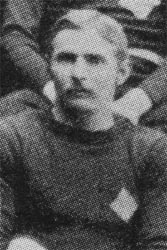
Harry Churchill Boyes was a South African international rugby union winger.
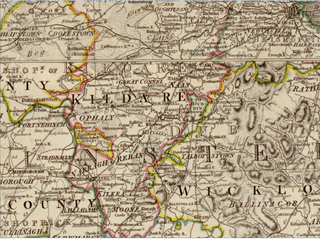
The High Sheriff of Kildare was the British Crown's judicial representative in County Kildare, Ireland from the 16th century until 1922, when the office was abolished in the new Free State and replaced by the office of Kildare County Sheriff. The High Sheriff had judicial, electoral, ceremonial and administrative functions and executed High Court Writs. In 1908, an Order in Council made the Lord Lieutenant the Sovereign's prime representative in a county and reduced the High Sheriff's precedence. However, the sheriff retained his responsibilities for the preservation of law and order in the county. The usual procedure for appointing the sheriff from 1660 onwards was that three persons were nominated at the beginning of each year from the county and the Lord Lieutenant then appointed his choice as High Sheriff for the remainder of the year. Often the other nominees were appointed as under-sheriffs. Sometimes a sheriff did not serve his full term due to death or another event, and another sheriff was then appointed for the remainder of the year. The dates given in this article are the dates of appointment.

Sir George Edward Cory, was an English-born South African chemist and historian, best known for his six-volume publication "The Rise of South Africa".
Frederick Henry Williams was a 19th-century Anglican clergyman, considered at the time to be a controversial figure.
Peter Bingham Hinchliff was a South African Anglican priest and academic. He was the Regius Professor of Ecclesiastical History at the University of Oxford from 1992 to 1995.
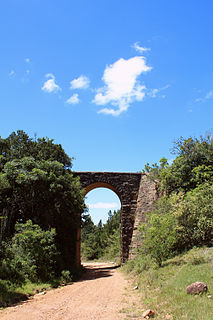
Guybon Damant Atherstone M. Inst. C.E. AKC, South African railway engineer.
Ivan Mitford-Barberton (1896–1976) was a sculptor, writer and authority on heraldry.
Arthur Matthews was a founding professor at Rhodes University in Grahamstown, South Africa.
Vere Palgrave Stent (1872-1941) Journalist and war correspondent, theatre critic, playwright and author
Claude Albemarle Bettington was a mining engineer and a pioneer aviator from South Africa.
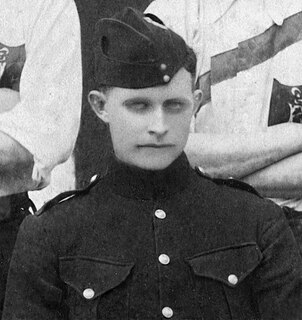
Colonel Stratford Edward St Leger was an Anglo-Boer War and World War I diarist and artist.
This page is based on this
Wikipedia article Text is available under the
CC BY-SA 4.0 license; additional terms may apply.
Images, videos and audio are available under their respective licenses.










